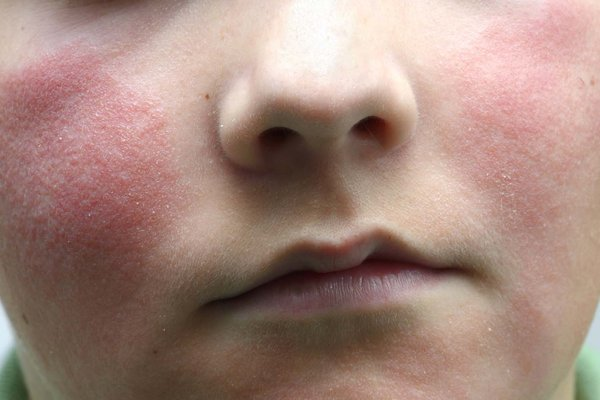Understanding Slapped Cheek Syndrome
Slapped cheek syndrome gets its name from the distinctive red rash on children’s faces, making it look like they’ve been slapped. It’s also called fifth disease and erythema infectiosum. Typically, it affects young children, especially those between 4 to 10 years old. While adults can get it too, its appearance in adults might differ. Knowing these basics lets caregivers and educators address the illness with confidence, ensuring swift care and minimizing transmission.
Causes and Transmission
The main culprit of slapped cheek syndrome is the human parvovirus B19. The virus spreads easily when an infected person coughs or sneezes, making schools a perfect breeding ground. Close contact plays a big role, so knowing this can help prevent its spread. It usually takes about 4 to 14 days after exposure for symptoms to appear, giving the illness time to develop unnoticed at first.
Recognizing Symptoms Early
Slapped cheek syndrome starts quietly. Kids might feel a mild fever, sore throat, or a runny nose in the early days. This might seem like just another cold. But soon after, the name-giving rash makes an appearance. It starts as a bright red rash on the face, making it look like cheeks have been slapped. Over the next few days, this rash can spread to the body, especially the arms and legs, turning from red to a lighter, lace-like pattern.
Not everyone shows these classic signs, particularly in adults. They might only experience flu-like symptoms or joint pain. Keeping an eye out for these early signs in children and adults can help manage the illness and stop it from spreading in schools or families. Schools and groups can put prompts in place to help spot signs early and keep everyone healthy.
Who is Most Vulnerable?
Kids between 4 and 10 years old most often come down with slapped cheek syndrome. It spreads rapidly among them because of how closely they interact during play and school. However, adults aren’t completely safe, especially if they haven’t had it before. People with weak immune systems, women who are pregnant, and those with certain blood disorders need to take special care. For these high-risk groups, the illness can pose extra challenges. Ensuring precautions are in place can keep everyone safe.
Assessing Severity
In general, slapped cheek syndrome doesn’t cause severe issues for most healthy kids and goes away on its own. But some high-risk groups might face complications. Pregnant women, in particular, should be cautious. Though complications are rare, those with weak immune systems or certain health issues like blood disorders might need extra monitoring. Understanding when to raise the alarm can help shield everyone from potential problems.
Diagnosis Protocols
Doctors usually identify slapped cheek syndrome through visible symptoms, particularly the red rash. However, in special cases such as during pregnancy or if there are immune complications, a doctor might order lab tests. A clear and timely evaluation keeps one step ahead of the condition.
Effective Treatment Methods
There’s no magic pill for slapped cheek syndrome since it often resolves on its own. The key lies in symptom management:
- Rest: Encourage rest to help the body recover.
- Hydration: Make sure they drink plenty of fluids.
- Pain Relief: Over-the-counter medicines help soothe any pain or fever.
- Itch Management: Lotions or antihistamines may relieve itching if present.
Seeing a doctor is crucial if high fever persists or if you experience unusual symptoms, especially in high-risk individuals like pregnant women. Prompt attention can keep things on track, minimizing discomfort and complications.
Preventative Measures and Recommendations
Keeping slapped cheek syndrome at bay involves simple acts:
- Practice good handwashing habits to reduce germ spread.
- Parents should keep kids at home if they show symptoms, especially the rash.
- Schools can help by limiting exposure and promoting hygiene awareness.
These steps ensure a safer environment for everyone, reducing illness chances.
Final Thoughts and Reassurance
Educating oneself about slapped cheek syndrome allows quick identification and response. Though generally mild, staying alert ensures it doesn’t catch anyone off guard. Knowing when to seek medical help means you can handle complications swiftly. Above all, adopting good hygiene habits keeps these common illnesses at a distance, promoting overall health and safety for everyone. With a bit of vigilance and care, you can keep your loved ones safe while navigating daily challenges.
